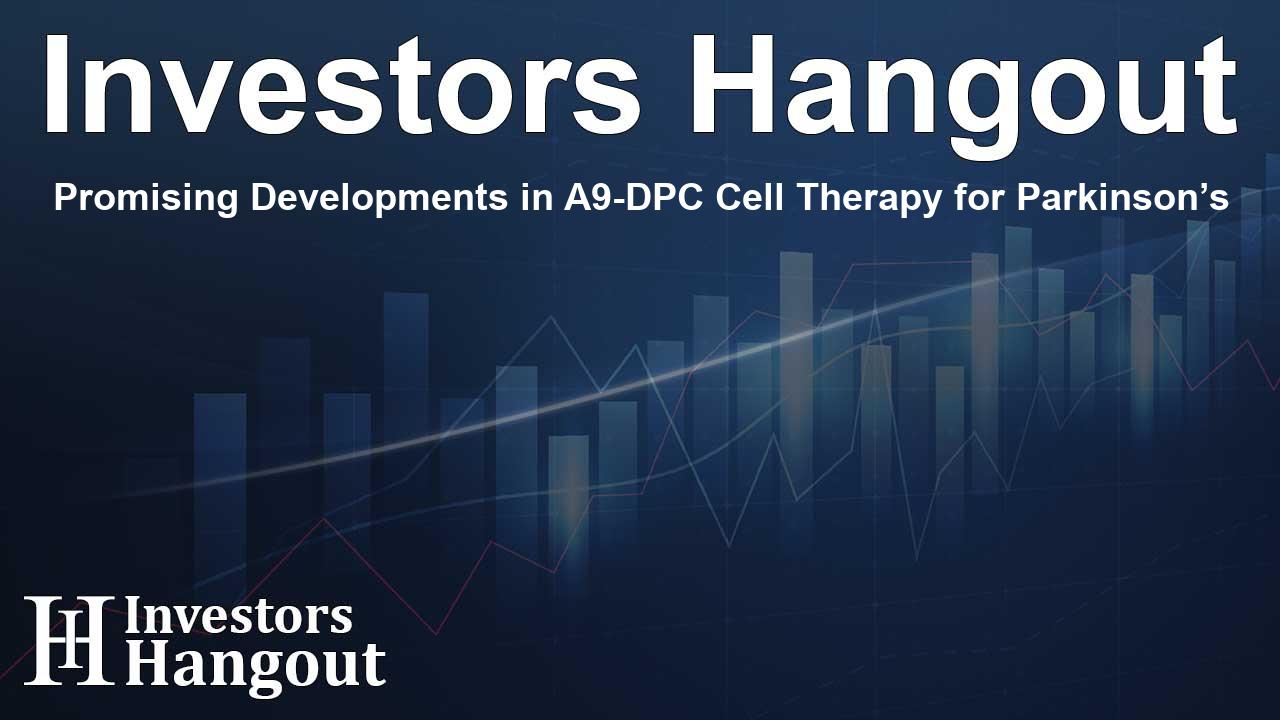Promising Developments in A9-DPC Cell Therapy for Parkinson’s

Positive Outcomes from the A9-DPC Cell Therapy Trial
S.BIOMEDICS recently shared promising results from its Phase 1/2a clinical trial investigating A9-DPC cell therapy for Parkinson's disease. This innovative treatment has shown a favorable safety and efficacy profile, particularly after a year of monitoring. The trial included 12 participants who received either a low dose or a high dose of this advanced cell therapy, with those receiving higher doses demonstrating especially encouraging results.
Understanding A9-DPC: The Advances in Cell Therapy
A9-DPC, a product of meticulous research and development, comprises high-purity dopaminergic progenitor cells. These are obtained from human embryonic stem cells under strict Good Manufacturing Practice (GMP) conditions. The clinical study involved bi-lateral transplantation of these cells into the putamen of participants, allowing for detailed evaluation of both safety and efficacy over time.
Results After One Year
After 12 months, the trial results highlighted notable clinical improvements in the participants. Both low and high dose groups exhibited significant reductions in the MDS-UPDRS Part III (off) score, a scale used to measure motor symptom severity in Parkinson's disease, indicating a meaningful enhancement in motor functions. For instance, participants in the low-dose cohort experienced an average decrease of 12.7 points, while those in the high-dose cohort noted an even greater improvement of 15.5 points.
Long-Term Safety and Efficacy
Throughout the study, researchers observed a favorable safety profile without severe adverse events related to the transplanted cells. No incidents of tumor formation or detrimental immune responses were recorded. The findings not only promise a potential breakthrough for the treatment of Parkinson's disease but also contribute to our understanding of cell therapy's role in regenerative medicine. The objective of this ongoing study extends to demonstrating lasting effects and exploring further safety evaluations over the next few years.
Funding and Future Aspirations
S.BIOMEDICS is dedicated to advancing cell-based medicine through robust research frameworks. With several programs under development, including the notable A9-DPC initiative, the company is positioning itself at the forefront of innovative treatments for challenging ailments. The continuous pursuit of knowledge in stem cell therapy parallels the broader goal of enhancing lives impacted by neurological disorders like Parkinson's disease.
The Role of Neuroimaging in Treatment Assessment
In correlating clinical improvements to neuroimaging findings, researchers used [18F]FP-CIT PET scans to track changes in dopamine transporter (DAT) signals, further validating the therapeutic approach of A9-DPC. The evidence gathered supports hypotheses surrounding synaptic restoration, suggesting that engaging these engrafted cells may lead to restorative benefits in neural connectivity and motor function.
Broader Applications and Innovations
With the promising nature of A9-DPC, there are hopes that this cell therapy could pave the way for similar treatments aimed at various neurodegenerative diseases. The commitment to bringing forth innovative therapies signifies a major step in regenerative medicine. As the company progresses, their ongoing studies will likely unveil further insights into both the mechanisms of action and long-term outcomes associated with A9-DPC.
Frequently Asked Questions
What is A9-DPC cell therapy?
A9-DPC cell therapy is an investigational treatment designed to replace lost dopaminergic neurons in patients with Parkinson's disease using high-purity progenitor cells derived from human embryonic stem cells.
What were the main outcomes of the Phase 1/2a clinical trial?
The trial demonstrated significant improvements in motor function and a favorable safety profile, with reductions in the MDS-UPDRS Part III scores for participants receiving either low or high doses of A9-DPC.
How does A9-DPC work?
A9-DPC aims to restore lost neuronal connections by transplanting dopaminergic progenitor cells into specific areas of the brain, which mature into neurons and potentially enhance motor function.
What safety measures were taken during the trial?
The trial closely monitored for any adverse events or complications associated with the transplanted cells, reporting no significant occurrences of tumorigenesis or harmful immune responses.
What does the future hold for S.BIOMEDICS?
S.BIOMEDICS is focused on advancing its cell therapy programs and has hopes of expanding treatment applications, continuously striving to innovate solutions in regenerative medicine.
About The Author
Contact Lucas Young privately here. Or send an email with ATTN: Lucas Young as the subject to contact@investorshangout.com.
About Investors Hangout
Investors Hangout is a leading online stock forum for financial discussion and learning, offering a wide range of free tools and resources. It draws in traders of all levels, who exchange market knowledge, investigate trading tactics, and keep an eye on industry developments in real time. Featuring financial articles, stock message boards, quotes, charts, company profiles, and live news updates. Through cooperative learning and a wealth of informational resources, it helps users from novices creating their first portfolios to experts honing their techniques. Join Investors Hangout today: https://investorshangout.com/
The content of this article is based on factual, publicly available information and does not represent legal, financial, or investment advice. Investors Hangout does not offer financial advice, and the author is not a licensed financial advisor. Consult a qualified advisor before making any financial or investment decisions based on this article. This article should not be considered advice to purchase, sell, or hold any securities or other investments. If any of the material provided here is inaccurate, please contact us for corrections.
